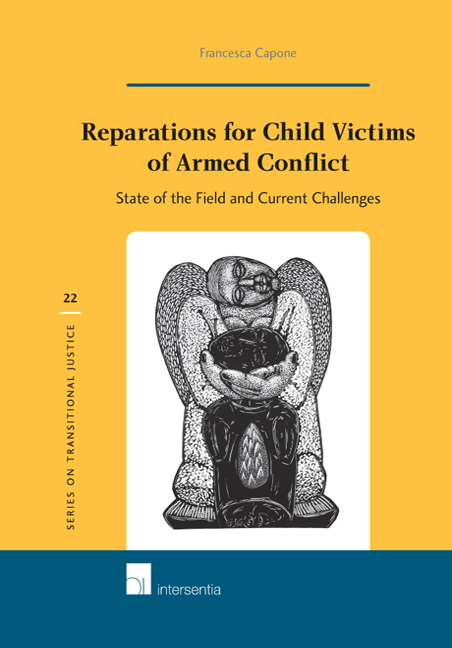
- Cited by 4
-
Cited byCrossref Citations
This Book has been cited by the following publications. This list is generated based on data provided by Crossref.
2017. New publications in international humanitarian law and on the International Committee of the Red Cross. International Review of the Red Cross, Vol. 99, Issue. 904, p. 463.
Capone, Francesca 2018. The Duty of Care of International Organizations Towards Their Civilian Personnel. p. 457.
Capone, Francesca 2021. The 1998–2000 Eritrea-Ethiopia War and Its Aftermath in International Legal Perspective. p. 549.
Capone, Francesca 2022. Victim Advocacy before the International Criminal Court. p. 181.
- Publisher:
- Intersentia
- Online publication date:
- September 2018
- Print publication year:
- 2017
- Online ISBN:
- 9781780684741
- Subjects:
- Law: General Interest, Law
- Series:
- Series on Transitional Justice


